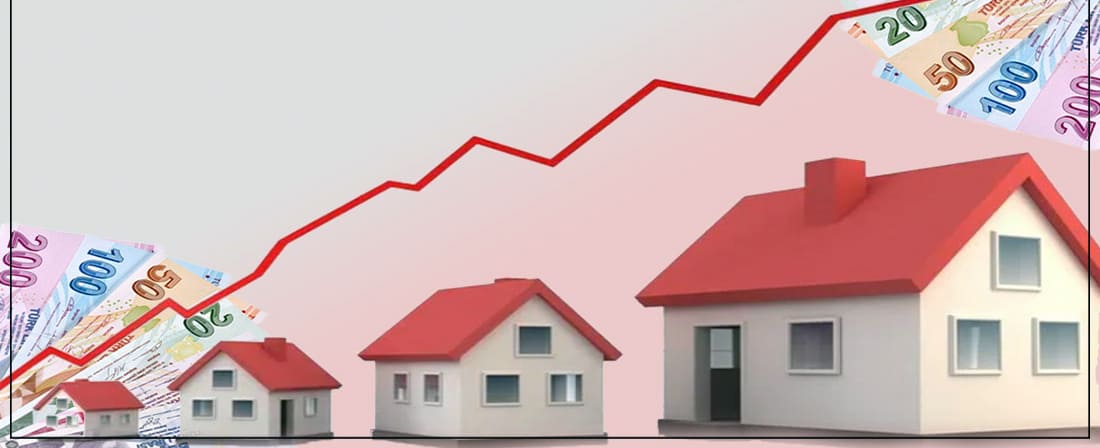One key driver of the residential real estate market is the growing urban population in Turkey. The rapid pace of urbanization has led to rising demand for housing in major cities, including Istanbul, Ankara, and Izmir. This has resulted in a surge in construction activities, with developers launching new projects to meet the housing needs of the growing population.
Turkey Residential Real Estate Market Analysis
Turkey's residential real estate market will continue to showcase promising trends and opportunities. Government policies and incentives have also played a crucial role in shaping the real estate landscape.
The Turkish government has implemented various measures to stimulate the housing market, such as reduced VAT rates and citizenship programs for foreign investors. These initiatives have attracted local and international buyers, boosting demand and creating a favorable investment environment.
Additionally, the housing affordability in Turkey compared to other European countries has made it an attractive destination for real estate investors.
The relatively lower property prices and favorable mortgage interest rates have made homeownership more accessible to a broader population. This affordability factor has further fueled demand and contributed to the overall growth of the residential real estate market.

Another significant development in the market is the increasing focus on sustainable and environmentally friendly housing. Developers are incorporating eco-friendly designs, energy-efficient features, and green building practices to cater to the rising demand for sustainable living spaces. This shift towards sustainability aligns with global trends and reflects the changing preferences of homebuyers who prioritize environmentally conscious living.
The Importance of Real Estate in Turkey's Real Estate Market
Real estate plays a crucial role in Turkey's economy and holds significant importance in various aspects of the country's development.
Here are some key reasons why real estate is essential in Turkey:
Economic Contribution: The real estate sector is a major contributor to Turkey's economy. It generates significant employment opportunities, stimulates economic growth, and attracts domestic and foreign investment. Construction activities related to real estate projects create jobs in various sectors, including architecture, engineering, manufacturing, and services, thereby driving economic activity and contributing to GDP growth.
Investment Opportunities: Real estate in Turkey has traditionally been viewed as a stable and lucrative investment option. The country's strategic location and growing economy make it an attractive destination for investors. The real estate market offers a range of investment opportunities, including residential properties, commercial spaces, and vacation homes, catering to different investor preferences and financial goals.
Urban Development and Infrastructure: The real estate sector plays a vital role in shaping urban development and infrastructure in Turkey. As cities expand and the population increases, there is a continuous need for new residential areas, commercial centers, transportation networks, and other urban amenities. Real estate development projects contribute to creating modern and sustainable urban environments, improving the quality of life for residents, and supporting overall urban growth.
Tourism and Hospitality Industry: Turkey is renowned for its rich cultural heritage, natural beauty, and vibrant tourism industry. Real estate investments in tourist destinations such as coastal areas, historical sites, and ski resorts significantly support the tourism and hospitality sector. Developing hotels, resorts, holiday homes, and recreational facilities enhances the tourism experience and generates revenue and employment opportunities in these regions.
Social Stability and Homeownership: Real estate ownership promotes social stability and gives individuals and families a sense of security and belonging. Homeownership is highly valued in Turkish society, and the ability to own property is seen as a symbol of success and financial stability. The government's initiatives to facilitate homeownership, such as mortgage loan facilities and affordable housing projects, contribute to social welfare and support the aspirations of individuals and families.
The importance of real estate in Turkey extends beyond its economic significance. It is vital in driving economic growth, attracting investments, shaping urban development, supporting the tourism industry, and providing social stability through homeownership. The continued growth and development of the real estate sector are crucial for Turkey's overall progress and prosperity.
Real estate prices in Turkey
Real estate prices in Turkey have been steadily increasing over the past few years, driven by solid demand from domestic and international buyers. The country's strategic location between Europe and Asia and its rich history, beautiful landscapes, and vibrant culture have made it an attractive destination for property investment.

Real estate prices have grown significantly in major cities like Istanbul, Ankara, and Izmir, especially in prime locations and luxury developments. The government has also implemented various incentives to encourage investment in the real estate sector, such as the citizenship by investment program, which allows individuals who purchase property worth a certain amount to obtain Turkish citizenship.
New infrastructure and transportation projects have also boosted property values in certain areas. Despite these challenges, the Turkish real estate market attracts investors looking for opportunities in a dynamic and evolving market.
Cities where prices will rise the most
In addition to Istanbul, various Turkish cities are expected to see significant increases in real estate prices in the coming years. Cities such as Ankara, Izmir, Antalya, and Bursa are also experiencing rapid urbanization, population growth, and increased demand for housing.
These cities offer a high quality of life, modern amenities, and attractive investment opportunities, making them popular choices for both domestic and international buyers. The government's focus on infrastructure development and urban renewal projects in these cities is further driving the growth of their real estate markets.
Additionally, the rise of remote work and digital nomadism has increased interest in coastal and resort towns such as Bodrum, Alanya, and Fethiye, where property prices are expected to rise. With Turkey's diverse landscape, rich cultural heritage, and favorable climate, these cities are poised to become hotspots for real estate investment soon.
However, as with any market, potential investors should carefully consider the economic and social factors that may impact these cities' sustainability of price increases. Despite these considerations, the overall outlook for real estate investment in Turkey remains positive, with numerous opportunities for growth and profitability across various cities.
Foreign homebuyers are rising strongly again
Foreign homebuyers from foreign currencies again show a strong interest in purchasing properties in Istanbul. Despite the economic challenges, the city has continued to attract a growing number of international buyers looking to invest in real estate. With its rich history, vibrant culture, and strategic location, Istanbul has long been a popular destination for foreign investors.
Istanbul's real estate market offers many options, from luxury apartments with stunning views of the Bosphorus to charming historic homes in the old city. As the Turkish government continues to implement policies aimed at making it easier for foreigners to buy property in the country, it is expected that the trend of rising foreign homebuyers in Istanbul will only continue to grow in the coming years.
Tips and recommendations for potential investors in Turkey's real estate market

Investing in the Turkish real estate market can be a lucrative opportunity for potential investors, but it's important to approach it with caution and thorough research.
There are some tips if you want to invest in Turkey:
Research the market well
For investors looking to capitalize on the growth of the Istanbul real estate market, thorough market research is essential. Understanding the economic, social, and political factors that drive the demand for property in specific cities is crucial for making informed investment decisions.
It is crucial to consider factors such as population growth, urban development plans, infrastructure projects, and the overall economic stability of the region.
Additionally, investors should carefully assess the potential for rental income and capital appreciation in their chosen location. Engaging with local real estate professionals, seeking expert advice, and asking a real estate company can also provide valuable insights into the market dynamics and help investors navigate potential challenges.
Choose the location wisely
When investing in the Turkish real estate market, choosing the location wisely is crucial. Different regions in Turkey offer varying potential for rental income and capital appreciation. Consider factors such as proximity to amenities, transportation links, and potential for tourism or development.
Additionally, understanding the local demand for rental properties and the preferences of potential tenants can help you make an informed decision about the location of your investment. Engaging with local real estate professionals and conducting thorough research on different areas in Turkey can help you identify the best location for your investment.
Determine your investment goals
When investing in Turkey, it is crucial to determine your investment goals beforehand. This will help you make informed decisions and maximize your returns. There are several factors to consider when setting your investment goals in Turkey.
- First, could you consider the time horizon of your investment? Are you looking for short-term gains or long-term growth? If you have a longer time horizon, consider investing in real estate or infrastructure projects that offer potential appreciation over time.
- Secondly, could you assess your risk tolerance? Investments come with varying levels of risk, and it is essential to align your risk tolerance with your investment goals.
- Next, consider the expected return on investment (ROI). Different sectors and asset classes offer varying levels of returns. Could you thoroughly research the historical performance and future growth prospects of other industries in Turkey to determine which ones align with your desired ROI?
- Furthermore, take into account any specific sectoral preferences or expertise you have. Investing in an industry where you have knowledge and experience can give you an edge and increase the likelihood of success.
- Additionally, consider any personal values or ethical considerations that may influence your investment decisions.
You'll cable familiarize yourself with Turkish laws and regulations regarding foreign investments to ensure you comply and avoid legal issues.
Conclusion
The Turkish property market, particularly in Istanbul, is experiencing a significant increase in growth, fueled by its role as Turkey's economic and cultural heart. This upsurge is evident in rising home sales, driven by domestic and foreign buyers, including those interested in obtaining Turkish citizenship through real estate investment.
Key infrastructure developments, notably the new Istanbul Airport and the Canal Istanbul, are elevating the city's profile and boosting its appeal to tourists, thereby escalating house prices and rental yields. The real estate sector, especially compared to the previous year, is witnessing a surge in interest in buying real estate, making it an increasingly lucrative option for investors seeking capital appreciation and robust returns.
Related Articles:


